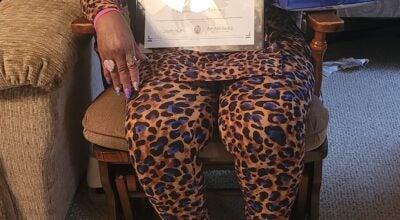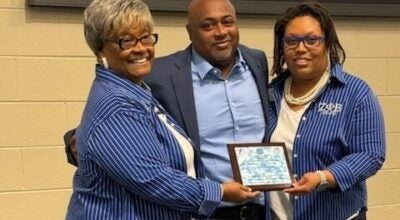UAB grant will fund telehealth technology at Vaughan Regional
Published 9:37 pm Wednesday, February 7, 2018
By Adam Dodson | The Selma Times-Journal
After receiving a grant from the United States Department of Agriculture, The University of Alabama-Birmingham’s telehealth program is increasing its presence in rural communities across the state.
Beginning in 2015, UAB’s telehealth program exists to make the lives of those in medical need who live in rural parts of Alabama easier by connecting them with UAB-approved physicians through a central network. Using high-definition cameras, Bluetooth technology and trained operators, the telehealth medical cart allows for patients to gain access to physicians located in bigger cities, such as Birmingham.
The patients and physicians would be able to converse back and forth through the medical cart’s screen. A registered nurse or social worker known as a “telepresenter” would be able to conduct examinations for a variety of issues. For example, the telestethoscope could be used to conduct medical check-ups through internet connection.
According to Dr. Eric Wallace, UAB’s medical director for health care, telehealth “could be used for diabetes or for critical care” or “for all classes of acute illnesses.”
This in turn impacts rural residents, who may not live near a hospital, by saving them gas money and reducing the time it takes to receive attention.
UAB partnered with the Alabama Department of Public Health and nine hospitals to apply for the grant. In addition, 10 ADPH county health centers will be receiving telehealth equipment and services as well.
Hospitals near Selma covered in the USDA grant to receive equipment include: Vaughan Regional Medical Center of Dallas County, Bryan W. Whitfield Memorial Hospital of Marengo County, and Bibb County Hospital. One hospital in Winston County has closed down and will be replaced by a new recipient.
County health departments near Selma covered in the USDA grant to receive equipment include: Choctaw County Health Department, Lowndes County Health Department and Wilcox County Health Department.
Having this equipment in Dallas County and the surrounding areas will allow patients to cover a variety of needs without having to leave town. CEO of Vaughan Regional Medical Center, David McCormack, is ready to see the results of what he believes will be revolutionary for rural health care.
“This is going to save patients a lot of money and time by keeping them with a local doctor while getting consultation from Birmingham doctors,” McCormack said. “Now, they can stay local and get the same medical care here.”
Access to quality health care in rural communities has been a growing concern in Alabama, including rural hospitals closing down altogether. According to Holly Gainer of UAB News, this has resulted in disproportionate health issues.
“Death rates from cardiovascular and oncologic illnesses and diabetes are significantly higher for rural Alabamians than for those living in urban areas,” Gaines said in a UAB News article. “The majority of Alabama’s medical specialists are located in the state’s larger cities; but a large percentage of the state’s population lives outside those areas, making it harder to receive care.”
According to Wallace, many of these locations could take a couple of months to get up and running with the technology. However, including the sites currently running, he aims to have 50 sites statewide with telehealth equipment by the end of the year.
While entities receiving the grant are excited about being able to expand the telehealth program, the grant specifically covers the equipment. This means that hiring certified workers, organizing telehealth practices and other personnel hurdles still need to be jumped.
However, Wallace believes in their commitment to the improvement of health access.
“Despite the grant only paying for equipment, we are all 100 percent behind telehealth. We know what it is going to mean for the state of Alabama. It has potential to change health care in rural areas,” Wallace said.
According to Michael Smith of the Alabama Department of Public Health, the total amount of money going towards equipment is $753,000.
The USDA contributed $499,000, while the other $254,000 are matched funds from the parties involved with applying for the grant, including a $41,000 cash match from the ALDPH.
In addition to being connected to physicians located in Birmingham, Wallace says that some physicians outside the state may be used as well. International opportunities may also be available in the future. Referral centers will still be offered to patients as well.





